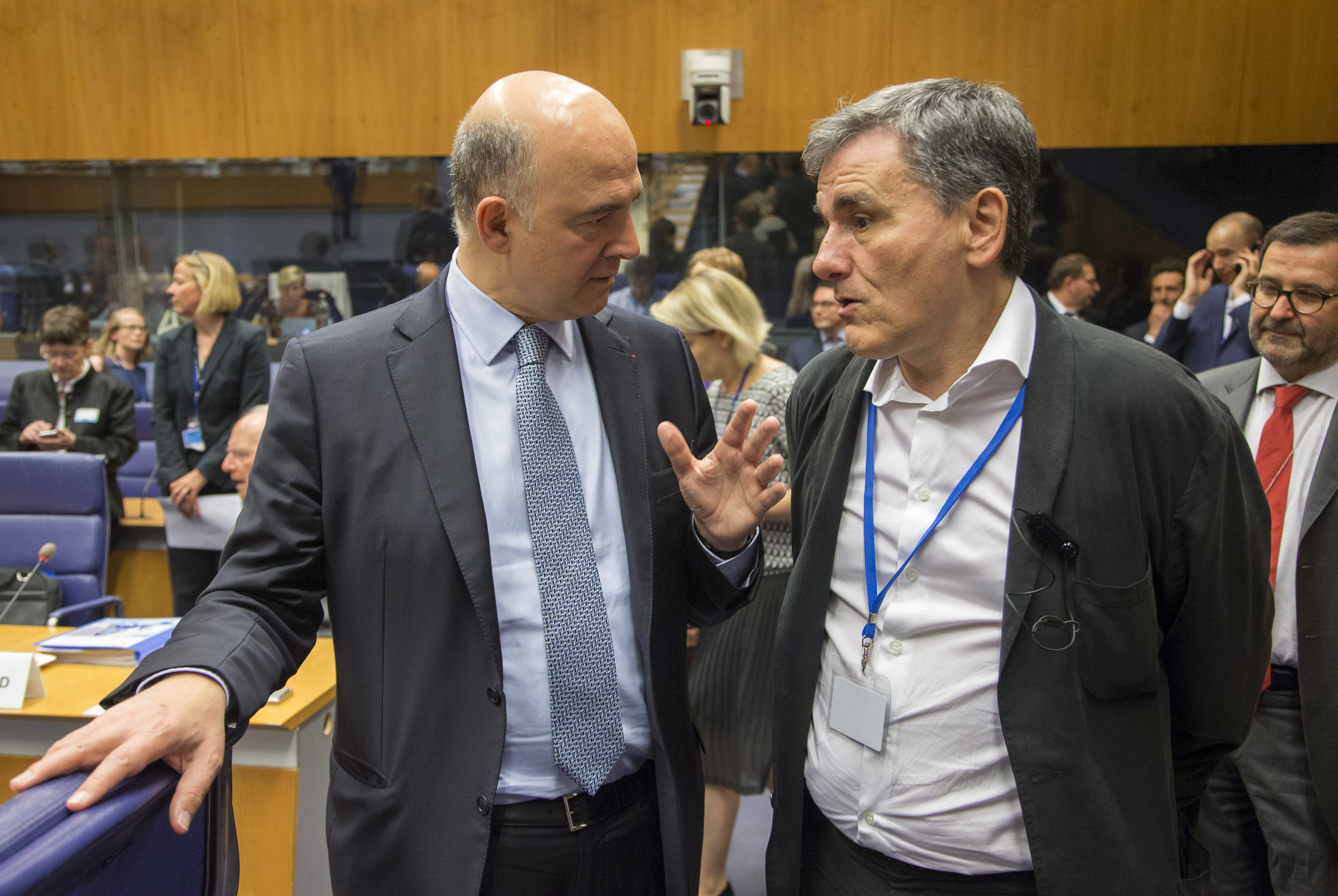A partial solution on the issue of the Greek has been agreed to with the five-year extension of the repayment period on loans from the second bailout memorandum and the early repayment of loans from the IMF and the ECB from unused funds from the third bailout memorandum.
That, however, is not enough. Finance Minister Euclid Tsakalotos and Alternate Finance Minister Yorgos Houliarakis are asking for a longer repayment extension – of eight to ten years – after 2022, when the current grace period ends, so as to ensure the viability of the debt at least through 2032.
They believe this is a clean solution that can address the suspicions and doubts of the markets regarding how Greece can manage without a bailout memorandum.
The final arrangement, whatever it may be, is expected to be approved at the 21 June Eurogroup, and will have two component parts.
One is the extension of the repayment period of EFSF loans and the disbursement of the funds required for the early repayment of loans from the IMF (11bn euros) and of bonds held by the ECB (14bn euros) from the remaining funds of the third and last bailout programme, which ends in August.
What the Commission wants
For its part, the European Commission, for political reasons, and in order to create a suitable climate, ahead of the May, 2019, European Parliament elections, is eager to strike a compromise between Germany, France, and the Greek government.
The European partners at the moment, given the FYROM naming agreement, do not want to destabilise the government, as they are eager to extend an invitation with a date to Skopje to start accession talks.
High-level sources in Brussels, who briefed the international media last week, said that “everything is wrapping up for Greece on 21 June”, and noted that “we are preparing for a package solution”. “That can be overturned only with a nuclear threat,” they quipped.
The ‘nuclear threat’
In this case, the threat could be a refusal of the German government to satisfy demands for a longer extension period on European loans. The German government, however, reportedly has already worked out with the ESM alternative solutions and has exhaustively threshed out all prospective solutions.
The overall direction is the aim of covering all of Greece’s borrowing needs for a ten-year period.
As tovima.gr revealed, the Greek government has been offered three options:
1. An extension only on EFSF loans
2. A cash offer of 25bn euros from the remaining funds of the ESM’s third bailout programme plus a five-year extension
3. 20bn euros in cash plus and eight-year extension.
This puts the Greek side in a tough spot, as its aim is a clear path between 2022 and 2032, without pressures from the markets, which requires an extension of over ten years.
Hence, some kind of compromise between the second and third options is likely. Under these, Greece would receive funds, beyond the security cushion for dealing with market turbulence, which will be spent on paying off high interest IMF and ECB loans, amounting to about 14bn euros.
If the 25bn euros left over from the 86bn euro current loan contract are not absorbed by the end of the programme on 20 August, Greece will definitively lose those funds.
The disbursement of the funds will be accompanied by strict terms, in the context of post-bailout supervision.
The expected agreement also provides for the return of 4-5bn euros in profits accrued by eurozone states’ central banks, in the form of grants, linked to the completion of specific reforms.



